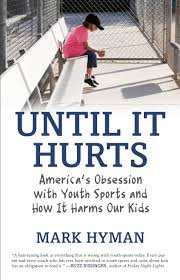With so much of the beauty of athletics lying in the creativity, flow and personal ownership an athlete or team has over the game, why would I ever want to limit my athletes to doing and thinking only what I say or think?
(Side note: Think for a moment about the irony in even trying to control every action and thought of one teenage kid during high intensity, emotional activity, let alone the thoughts and actions of many teenagers!)
I saw the chart pictured above a few months back, and it immediately struck a chord with me. It made me reflect back on my attitude as a coach, and how it has evolved. Today, teams I coach receive very little direct instruction while games are being played; and during timeouts and at quarter breaks, I try to keep things simple. I limit general team adjustments/ reminders to three or fewer, and individual adjustments/ reminders to only one.
I now believe that the most important part of my job exists in practice, in preparing my kids' for their biggest moments in the game. If I've done my job, the game will take care of itself -- athletes can think and act according to habit, knowledge and experience. And having personally experienced games where my athletes do think and act correctly on their own, I can say that those games give me the greatest satisfaction as coach, regardless of the outcome or the score on the scoreboard.
 |
| Recommended Reading |
Re-read the above, substituting the words "life, parent, kids, son, daughter" for "game, coach, athlete" and so on. Do you see a connection between sports and life? Which lesson is more important that kids learn: those that are sport-specific, or those applicable to both sports and life?
As you can see, I like to relate coaching philosophies back to life, and to the role of a parent. Our kids, inevitably, will find themselves in precarious situations where difficult decisions have to be made. Often, it will be up to our kids, entirely, to make their own best decisions!
In sports, as in life, if we as parents and educators have done our job correctly, (most of the time) our kids (we hope) will make the best decisions possible.
I have to add, I feel very fortunate to have a majority of team-parents in full support of this idea. Lucky me :)

Coaching is the difficult task for every human being, it needs a high level of dedication and high level of patience. It ultimately improves our leadership skills and ability, so that we can teach others and improve their learning and techniques. So, we can say that coaching is definitely a crucial part of our life. Doesn't matter what types of coaching it was, we should refine our skills through coaching. Thanks for highlighting such important topics.
ReplyDelete